International Sociological Association, ISA-RC51 on Sociocybernetics

Who are we?
The Research Committee 51 (RC51) of the International Sociological Association (ISA) is one of the more than fifty Research Committees which, along with a large number of national sociological associations, constitute the ISA.
The group was founded in 1980 as an ISA Ad Hoc Group by Francisco Parra-Luna, who organized its sessions at subsequent World Congresses of Sociology (1982, 1986, 1990, 1994). The group became first a Thematic Group of the ISA, then a Working Group and in 1992 again a Thematic Group for lack of activities. In 1995 it was reactivated under the leadership of Felix Geyer, and the first board was elected with Kenneth Bailey, USA, as President and Felix Geyer, the Netherlands, as Secretary. The group – now with the label “sociocybernetics” – was re-recognized by the ISA first as a Working Group and at the 1998 World Congress of Sociology in Montreal as a Research Committee. It grew from some 30 members in early 1995 to about 140 members at the time of the 2002 World Congress of Sociology in Brisbane. At that point, about half of these members were also individual members of the parent association ISA.
For more information see board and statues.
It takes its particular strength from face-to-face interaction and intensive personal discussions that occur in the more intimate setting of the yearly International Conferences of Sociocybernetics.
RC51 offers to its members a Newsletter which was started in 1996 and a peer-reviewed electronic journal, The Journal of Sociocybernetics. This journal has been published by RC51 since 2000 on the RC51 website. It is complemented by Cybernetics & Human Knowing, which has become RC51’s second official journal. This website of RC51 provides detailed information about upcoming and past activities. It makes available bibliographic information and includes abstracts and papers presented by members of RC51 since 1998 both in the World Congresses of Sociology (held every four years) and in the International Conferences of Sociocybernetics which, since 1999, have been held in the years between the World Congresses.
It is the main objective of the RC to promote the development of (socio)cybernetic theory and research within the social sciences. Sociocybernetics is broadly defined here as including first- and second-order cybernetics, general systems theory, and various combinations and variations of these that can be subsumed under the term “the emerging sciences of complexity”, to the extent these can be applied to the subject matter of the social sciences.
https://www.isa-sociology.org/en/research-networks/research-committeesISA
